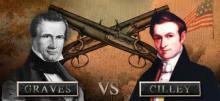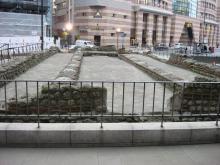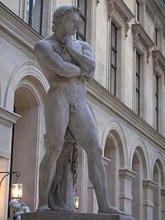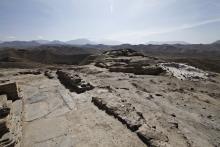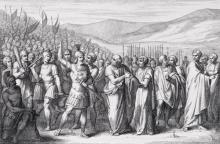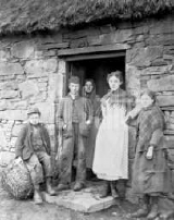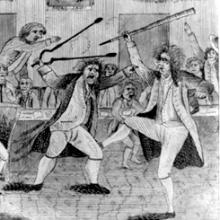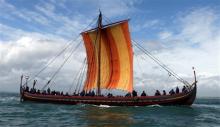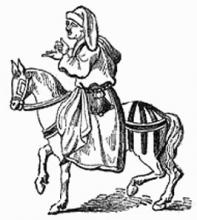November 2011
Roman Temple Getting New Old-Home
The site that the temple was placed at in 1962 was a little more than 250 feet away and about 30 feet higher than the original site. It was also mounted in cement mortar, a slight difference from the original foundations of the building.
"I Am Spartacus!"
Spartacus was a Thracian gladiator who was one of the leaders of a slave rebellion now known as the “Third Servile War.” Because many of the slaves were escaped gladiators, Spartacus led an army of experts at hand-to-hand combat, easily capable of thrashing the professional Roman army- which they did on several occasions.
Mes Aynak Versus the Almighty Dollar
Secession of the Plebs
Continuing on with my theme of the great Occupations of history, we have the Secession of the Plebs, an event that actually occurred several times in the early history of Republican Rome. The plebs or "plebeians" were the free citizens of ancient Rome, as distinct from the patricians or aristocratic class.
The social structure of the ancient world was highly stratified, so the plebs weren't actually the lowest class, since the slaves were below them. However, they were the 99% of ancient Rome, the ordinary common people without aristocratic privileges. At first, they had no political rights and no representation in the Senate, and the patricians used every tactic within their power to prevent them from gaining any.
Rewriting History for Fun and Profit
Highland Land Raids
The Occupations now happening all over the world are not a completely new form of popular protest. This tactic, in one form or another, has been used for many centuries, and one of those forms was the Highland “land raid.”
Less Than Brilliant Congressional Moments
Did you know that on January 30, 1798 the Honorable Representative of Vermont, Matthew Lyon (Democratic-Republican), was charged with “disorderly conduct” by the House of Representatives? After exchanging several insults with the Honorable Representative of Connecticut, Roger Griswold (Federalist), Mr. Lyon then proceeded to spit tobacco juice on him.
Not long after being charged with “disorderly conduct” the Honorable Mr. Lyon acquired an additional charge of “gross indecency of language in his defense before the House”. This was the result of another confrontation with the Honorable Mr. Griswold on February 8, 1798.
Learning From the Remains of the Queen Anne’s Revenge
Researchers May Have Discovered The Viking "Sun Stone"
"When Adam Delved and Eve Span, Who Was Then the Gentleman?"
In light of current events around the world, it might be a good idea to look at the story of John Ball, the radical priest who was one of the leaders of the peasant rebellion of 1381. When I say “radical priest,” I don't mean that any of his ideas were all that extreme, but they did appear that way to the rulers of England. In the words of John Ball himself:
“When Adam delved and Eve span, who was then the gentleman? From the beginning all men by nature were created alike, and our bondage or servitude came in by the unjust oppression of naughty men. For if God would have had any bondmen from the beginning, he would have appointed who should be bond, and who free. And therefore I exhort you to consider that now the time is come, appointed to us by God, in which ye may (if ye will) cast off the yoke of bondage, and recover liberty.”
